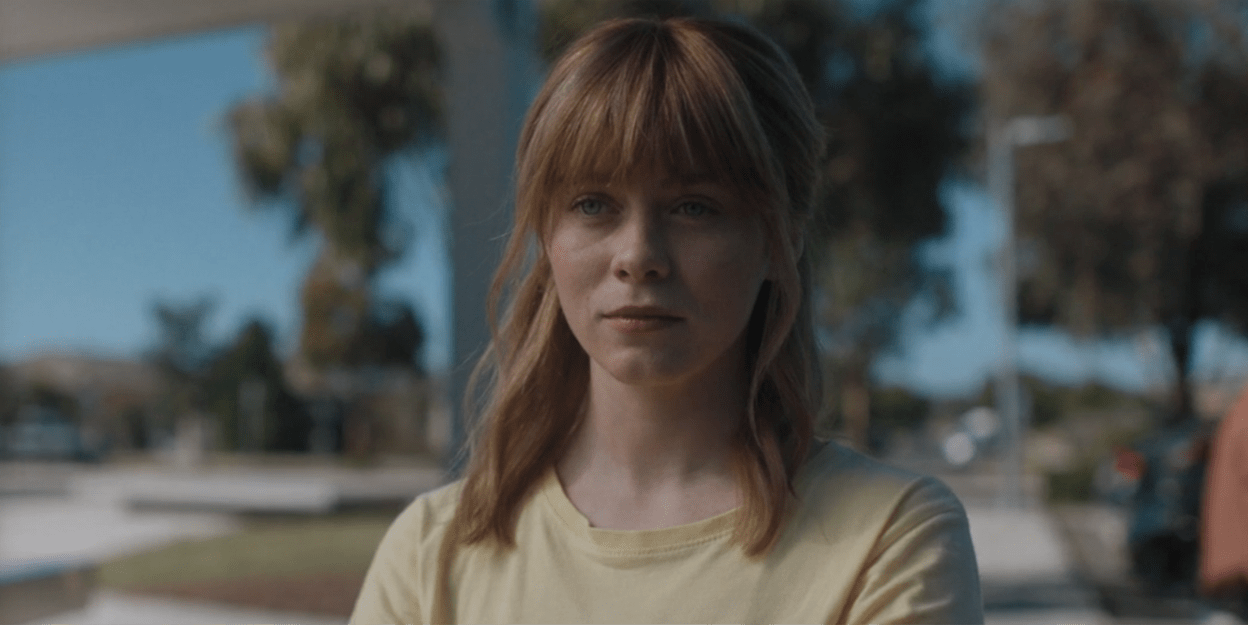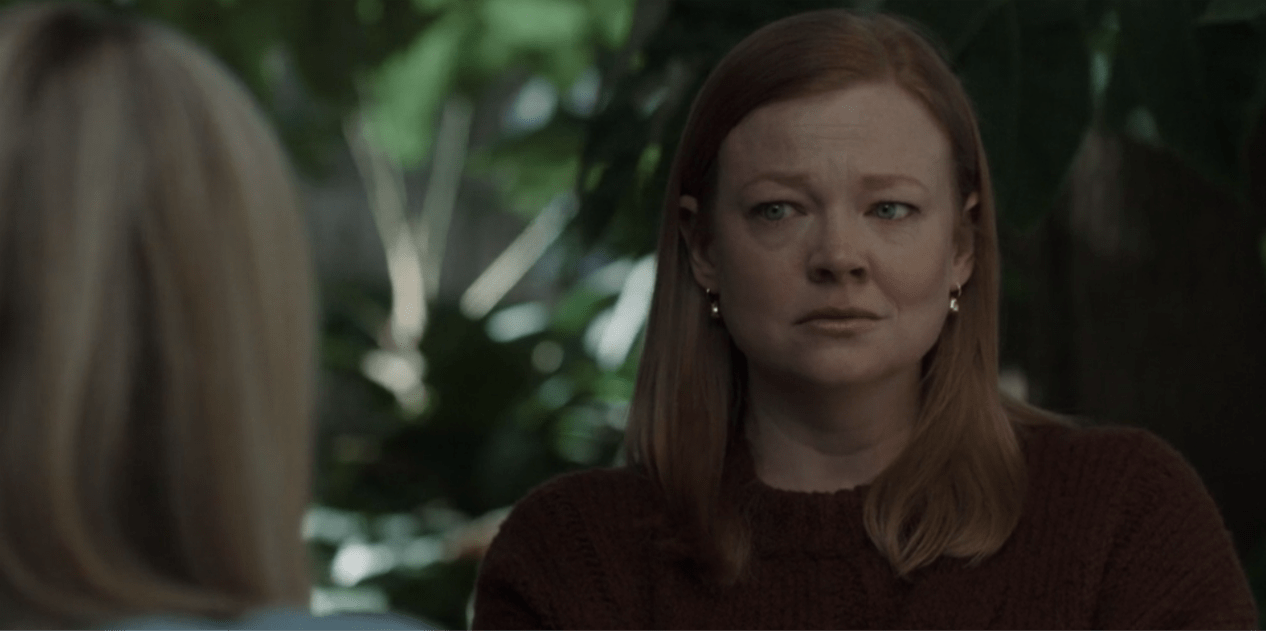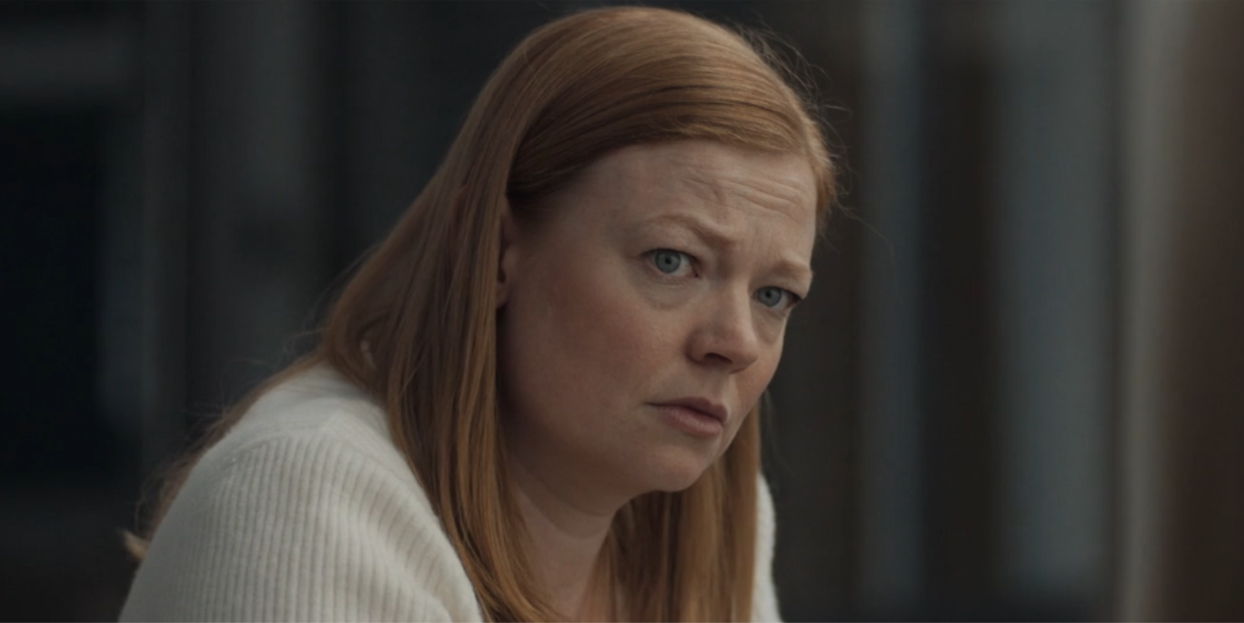Created by Megan Gallagher, Peacock’s ‘All Her Fault‘ probes into the kidnapping of Milo Irvine, who disappears from a playdate that seemingly never took place. As the investigation begins dialing backward, numerous missteps come to light, and Marissa Irvine descends into a slow downward spiral alongside her husband. The story then shifts to the life of Jenny Kaminski, a publishing agent and the mother of Milo’s best friend, who becomes mysteriously entangled in the criminal controversy. What rises out of this parallel narrative is a friendship between the two mothers, who are both determined to get to the bottom of the truth. However, as secrets unfold and families crumble, the pieces of the puzzle become harder to reassemble. This psychological thriller series doesn’t limit itself to a mystery plot; instead, it employs a socially conscious lens to examine the hows and whys of the story.
All Her Fault is an Adaptation of a Domestic Thriller Novel Partially Informed by Real Events
‘All Her Fault’ is based on the eponymous 2021 novel by Andrea Mara, which in turn draws inspiration from her own experiences as a mother. In particular, Mara reportedly based the opening chapter of her novel on an incident concerning her middle child when she was five. Upon arriving to pick her up from a playdate, she discovered that the house listed as the address was empty. When the neighbors confirmed the same, sheer panic took over, and Mara only later realized that she simply had the wrong address. While the event was quickly settled in real life, she used the emotions felt in that moment as the springboard, stretching the fear of losing one’s child to its upper limits. As confirmed by the author herself, however, the rest of the story that unfolds is largely fictitious in nature, with several creative touches being added to amplify the story’s dramatic nature.

The kidnapping of Milo Irvine is at the heart of ‘All Her Fault,’ and both Andrea Mara and the show’s creative team likely relied on similar real cases as vague reference points. In a piece written for the Irish Independent, Mara listed some of the real-life kidnappings and disappearances that she was aware of, and the collective reaction of both her and the parents around her might have played a role in the creation of the story. Mara began with an anecdote about a couple who felt comfortable being at a distance from their child while on vacation, before noting how opinions shifted following the disappearance of Madeleine McCann in 2007. The author then mentioned more cases, including the kidnappings of Natascha Kampusch, Jaycee Dugard, and Elizabeth Smart, further detailing how such crimes and their media coverage can affect the collective unconscious. The novel, as well as the show, utilizes fiction to channel that fear and spread awareness.
All Her Fault Questions Existing Socioeconomic Injustices
While adapting the source material for the screen, writer Megan Gallagher brought in a few changes of her own to enrich the story further. Notably, the scope of the story shifts from a close-knit domestic setting to one that blends many environments together. The biggest transition in this regard is the change in setting, from Dublin, Ireland, in the novel, to the homeland in the show. To that end, class conflict serves as one of the central narrative pillars, with co-director Minkie Spiro telling The Sydney Morning Herald, “It’s like an accordion, this show. You have the expanse, and then you go into these very intense moments, and then you’re out again.” To bring this tension to life, the show reportedly draws on classic domestic thriller movies of the 1980s and 90s, such as ‘Fatal Attraction’, as reference points, further adding to the overall visual identity.

While the backdrop to the mystery changes in the television adaptation, the intent is similar, as pointed out by Mara in a conversation with Hot Press, “the setting is very much a wealthy road with private houses, which is not where I live, but there are places like that not too far away that I’ve driven past, so I know what they’re like. It was fun to play around with the whole rich people doing bad things idea.” According to the show’s executive producer, Nigel Merchant, ‘All Her Fault’ is also conscious of gender and class intersectionality and how social pressure molds narratives. As such, a huge chunk of the story is dedicated to voicing out relevant concerns, such as disproportionate burden in domestic labor due to skewed gender dynamics. In doing so, the show also delves into the lives of parents, further grounding the story with a layer of authenticity.
Actor Sarah Snook, who plays the protagonist, Marissa Irvine, also echoed the idea in an interview with Vanity Fair, where she brought up the difficulties of balancing personal and professional lives, especially as a mother. The actor brought in her experience with ‘Succession,’ stating, “To be pregnant in one show and then have your child go missing in the other—let’s hope that’s not the motherhood journey for most.” Snook continued, explaining how her personal experiences have helped add depth to her performance: “There’s a different kind of attention to those roles that I can bring now from being a mom, and also a depth of feeling that I wouldn’t have understood prior to having a kid.” Additionally, writer Megan Gallagher infused the narrative beats with some of her own experiences as a mother of a child with autism, thus furthering the show’s scope and deepening its sensitivity to contemporary subjects.
Read More: Is Terry McMillan Presents: His, Hers and Ours Based on a True Story?


